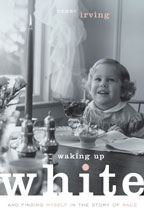
The Helpful Individual
I recently attended a fundraiser for an organization designed to “serve inner city youth.” Wine flowed, four courses of spectacularly prepped and plated food fed us, and a handful of young people spoke about the organization’s positive impact on their lives. The hope, of course, was that by wining, dining, and inspiring the heavily resourced crowd, increased support would stream to the organization and more young people could be served.
Once upon a time I might have been the person to organize such an event. Like many Americans, I was socialized to think in terms of individuals, not systems. People in distress created an impulse to help, never a drive to examine or challenge the forces creating the distress. Supporting YW’s, homeless shelters, needle exchange programs, and community gardens offered me the opportunity to feel like I was making a difference. And to some extent I was. What was missing for me was an equal effort to examine and challenge the systems creating the impacts I found so distressing.
The Myth of Meritocracy
Raised on a cultural narrative of meritocracy and justice, the very idea of systems, let alone unjust systems, eluded me. In my mind, we were all just individuals achieving or failing on our own merit and the best a “good person” could do was help those in need. So I helped. At least I thought I was helping, until a graduate school course opened my mind to the reality that all I’d really been doing was tending to the impacts of a system without awareness of the system itself. I have to wonder; did my hyper focus on helping actually distract me from digging deeper into the problem? I find the following African parable useful in conveying this phenomenon.
A Parable
One day a family went to a grassy field by a river for an outdoor family lunch. Shortly after they settled into their meal, one of them noticed a baby floating down the river, arms and legs flailing as it struggled to keep afloat. A few family members leapt into the river, pulled out the baby, and brought it to the safety of the grass. Just moments later another flailing baby came floating down the river. Again, the family rescued it. Then another and another. Babies and rescues and babies and rescues until finally, one family member stood and asked, “Wait a minute, who is throwing the babies in the river?”
Separate and Unequal
Though the U.S. abounds with people and organizations willing and able to jump in and help address downstream needs, far fewer exist to address the upstream forces producing and reproducing the negative impacts. In fact, simply mentioning “unjust systems” in the wrong crowd can get one labeled radical or heretic. The result is a culture of silence regarding upstream forces, a silence that maintains a culture of ignorance amidst charity. A question on my mind these days is this: What would it look like to use our downstream charitable organizations to educate those with power and privilege about unjust upstream systems and cultural habits?
Enlisting Downstream Donors in the Upstream Struggle
I imagine what this would look like in the context of the fundraising event above. Isn’t a room of 500 deep-pocketed community leaders a prime audience for upstream education? Though some will willfully cling to their power, I believe many would do more if they knew more. Yet I struggle with the risk of breaking the silence. I imagine myself asking the crowd to notice, not ignore, that those dining are disproportionately white while the service staff and young speakers are disproportionately black and brown? What would happen? Nods of recognition? Or seat-squirming discomfort? What if I asked them to turn and talk to the person next to them and create a list of the inequities embedded in the farm-to-table process embedded in the food on their plates and wine in their glasses? How long would their list be? Are they aware of the injustice they are literally consuming?
So strong is my social conditioning not to rock the boat that even imaging this has my heart palpitating. The risk feels high. What if such an approach alienated donors and resulted in less support for young people who really needed it? Then again, what if these folks were smart enough to grasp the futility of downstream charity without upstream change? Both are necessary. They go hand in hand. It feels to me that the risk of not educating the privileged, even about their own privilege, is the highest risk of all.
 Debby Irving brings to racial justice the perspective of working as a non-profit manager and classroom teacher for 25 years without understanding racism as systemic or her own whiteness as an obstacle to grappling with it. As a GM of First Night Boston, and later as a classroom teacher, she struggled to make sense of racial dynamics she could feel but not explain. In 2009, a graduate school course, Racial and Cultural Identity, gave her the answers she’d been looking for and launched her on a journey of discovery. Debby now devotes herself to working with people exploring the impact white skin can have on perception, problem solving, and creating equitable, racially diverse work teams and communities. A graduate of the Winsor School in Boston, she holds a BA from Kenyon College and an MBA from Simmons College. Her book, Waking Up White, tells the story of how she went from well-meaning to well-doing.
Debby Irving brings to racial justice the perspective of working as a non-profit manager and classroom teacher for 25 years without understanding racism as systemic or her own whiteness as an obstacle to grappling with it. As a GM of First Night Boston, and later as a classroom teacher, she struggled to make sense of racial dynamics she could feel but not explain. In 2009, a graduate school course, Racial and Cultural Identity, gave her the answers she’d been looking for and launched her on a journey of discovery. Debby now devotes herself to working with people exploring the impact white skin can have on perception, problem solving, and creating equitable, racially diverse work teams and communities. A graduate of the Winsor School in Boston, she holds a BA from Kenyon College and an MBA from Simmons College. Her book, Waking Up White, tells the story of how she went from well-meaning to well-doing.




